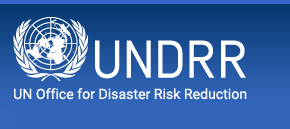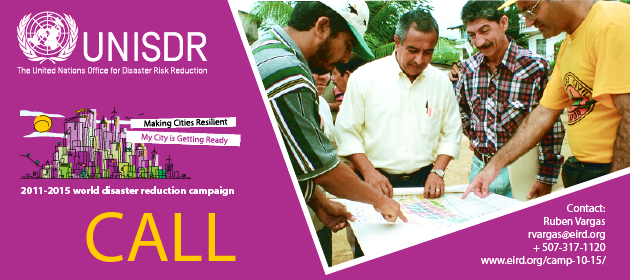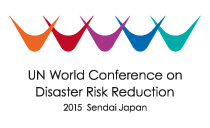- Headquarters
- Regional Office - The Americas
- UNISDR-CERRD
- Mission and Objectives
- Head of the Regional Office
- Vacancies
The United Nations Office for Disaster Risk Reduction (UNISDR), through its Regional Office for the Americas and in the framework of the initiatives of the Thematic Platform on Urban Risk in the Americas of the Global Campaign "Making Cities Resilient:My City is Getting Ready!" announces the:
CALL
Technical Assistance Exchanges between Local Government Development and Strengthening of Capacities for Building Resilience
By: UNISDR - Americas
Closing 19 July, 2015
Publication of results Starting 30 July, 2015
Development of exchanges August - December 2015
An invitation to the leaders of local governments to reaffirm their commitment to the sustainable and resilient development of their communities in disaster situations, in order to contribute to the development of their competencies (knowledge, skills, etc.) and management skills (organization, regulatory frameworks, etc.) on issues related to disaster risk reduction.
1. Introduction
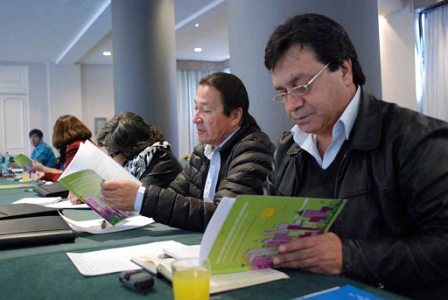
The Sendai Framework for Disaster Risk Reduction 2015-2030, adopted by the member states of the United Nations on 18 March, 2015 in Sendai, Japan, sets forth the need to strengthen management skills and capacities and implementation of the various levels of government as a necessary condition to advance in the reduction of disaster risk and the losses associated with the occurrence of these events on a global, regional and local level. Specifically, recognizing the fundamental role of national and subnational (provincial, federal) levels of government, it is necessary to advance the empowerment of the authorities and local communities (district, municipal, metropolitan, etc.) in order for them to effectively meet the challenges of building a resilient development.
In view of the above, and pursuing the actions taken within the framework of the Global Campaign Making Cities Resilient, the United Nations Office for Disaster Risk Reduction (UNISDR), through its Regional Office for the Americas, in 2015 will continue to support the realization of technical assistance exchanges between local governments of the Americas. This initiative integrates lessons learned from exchanges of experience between local governments of the region on disaster risk reduction from 2012-2014. Innovation is marked by the results and/or products to be achieved from the exchange, which should become direct contributions to local management, and moreover should be replicable at the country level and, if possible, on the regional scale.
The UNISDR World Campaign "Making Cities Resilient: My City is Getting Ready!" is an invitation to the leaders of local governments to reaffirm their commitment to building a development which reduces risk and increases resilience in their communities to disasters (for more information on the Campaign see http://goo.gl/Llrrje and http://goo.gl/F4lIvq ).
The execution of technical assistance activities is possible thanks to the contribution of donor governments and institutions.
2. The technical assistance exchanges.
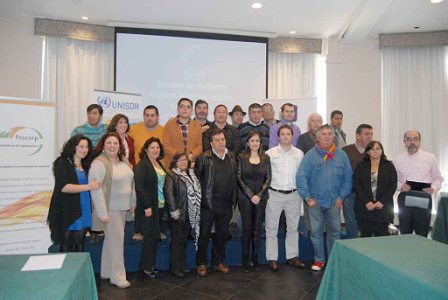
Assistance exchanges between local governments are intended to contribute to the development of their competencies (knowledge, skills, etc.) and management skills (organization, regulatory frameworks, etc.) on issues related to disaster risk reduction. Thus it seeks to strengthen the process of building a sustainable and resilient development, Integrated to the corresponding national and regional development vision.
Local governments of the Americas registered in the Campaign Making Cities Resilient may participate in the Call. Based on previous experiences, the Call will give preference to exchange projects carried out between local governments in a single country. In addition, the application of local governments to participate in the exchange may be submitted by organizations or associations of municipalities (associations or other forms of organization).
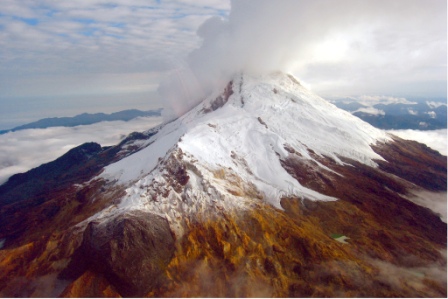
Exchange activities may be developed over a period of six (6) months. Selected local governments will develop, jointly with UNISDR and other relevant partners, a work plan to be executed during this period. The exchange proposal may include requests for external technical support, properly justified for one person up to a maximum of two (2) days. This support can be provided, for example, by another local government, a national agency or other institution in the country where the exchange takes place.
The work plan to be developed with selected local governments may contemplate a maximum of two (2) technical visits (1 for each participating local government). The work plan of the exchange should clearly specify the product or products that each local government expects to obtain as a result of the activity. Additionally, it should consider mechanisms for communication and exchange of advances that will be used in the development of the planned activities (e.g. teleconferencing).
Technical visits should bear in mind that the Call will cover:
|
Technical assistance exchanges between local governments may include, among others, activities such as:
|
3. Commitments from local governments involved in the exchange.
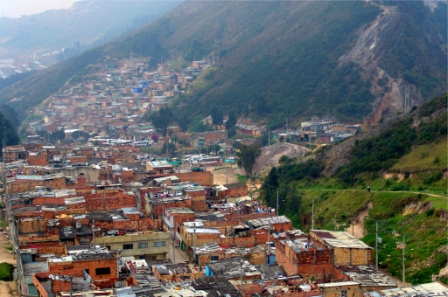
|
4 . Application/nomination procedure.
To apply/nominate, the local government concerned should complete the attached form (see Annex 1) and send it to rvargas@eird.org. Only those applications/nominations using the format indicated will be considered in the selection process.
The Call is divided into three stages:
|
5. Procedure and evaluation criteria.
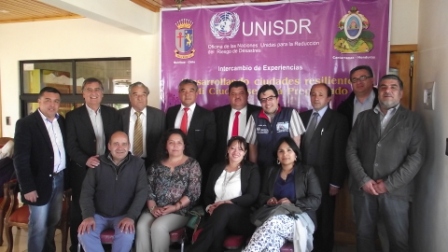
The evaluation committee, consisting of UNISDR and other institutions that will be invited to participate in the process, will select a maximum of 6 technical assistance experiences.
Applications/nominations will be evaluated taking into account the information provided in the application/nomination form (see Annex 1), which will be assessed according to the rating scale indicated for each question (not all questions provide points). The six proposals that obtain the highest score will be selected. The following criteria will be used in the evaluation:
|

Related Links
Download Flyer PDF
Download Flyer JPG
Download Terms of Reference in PDF
Download application form
Terms of Reference in Portuguese
